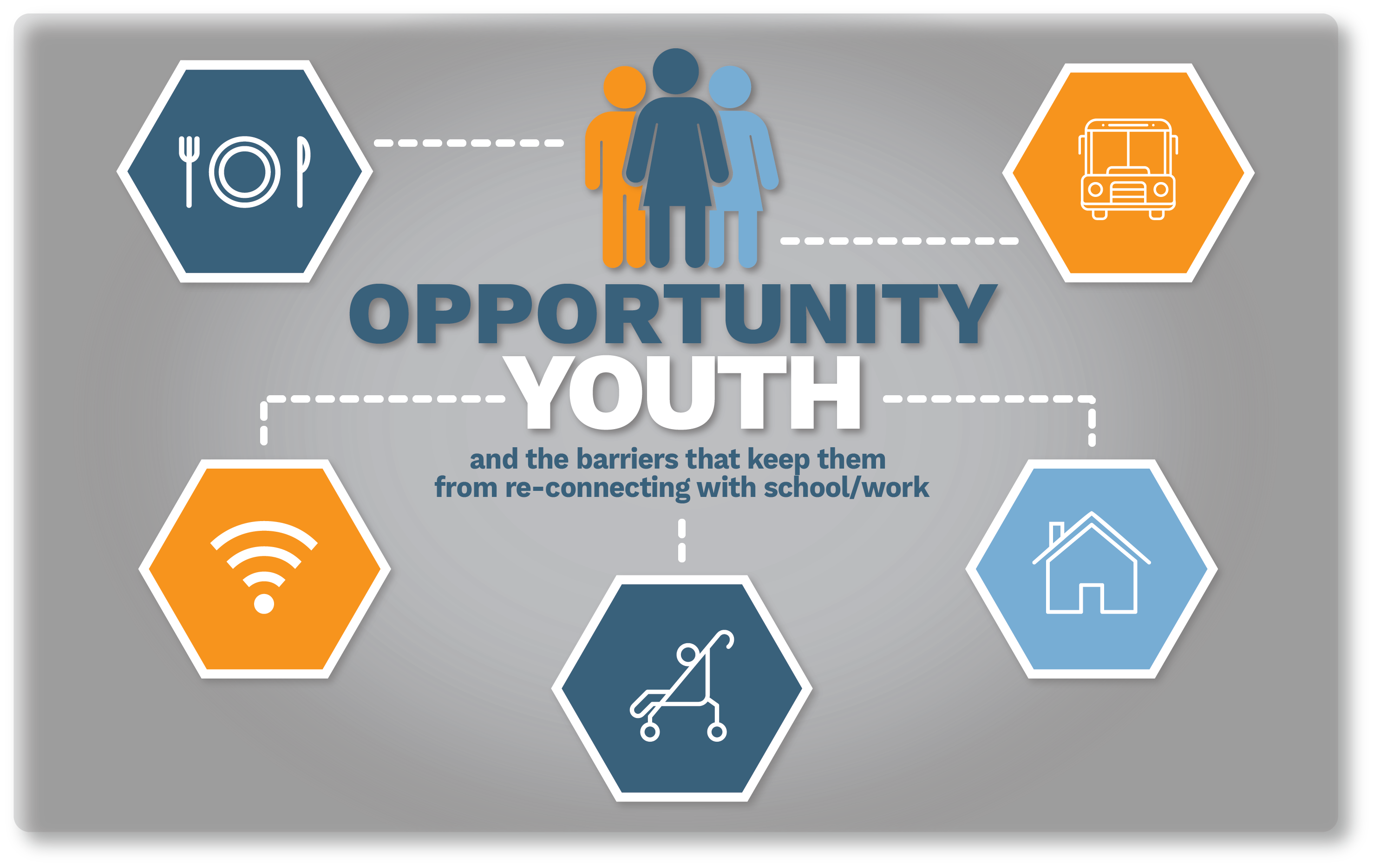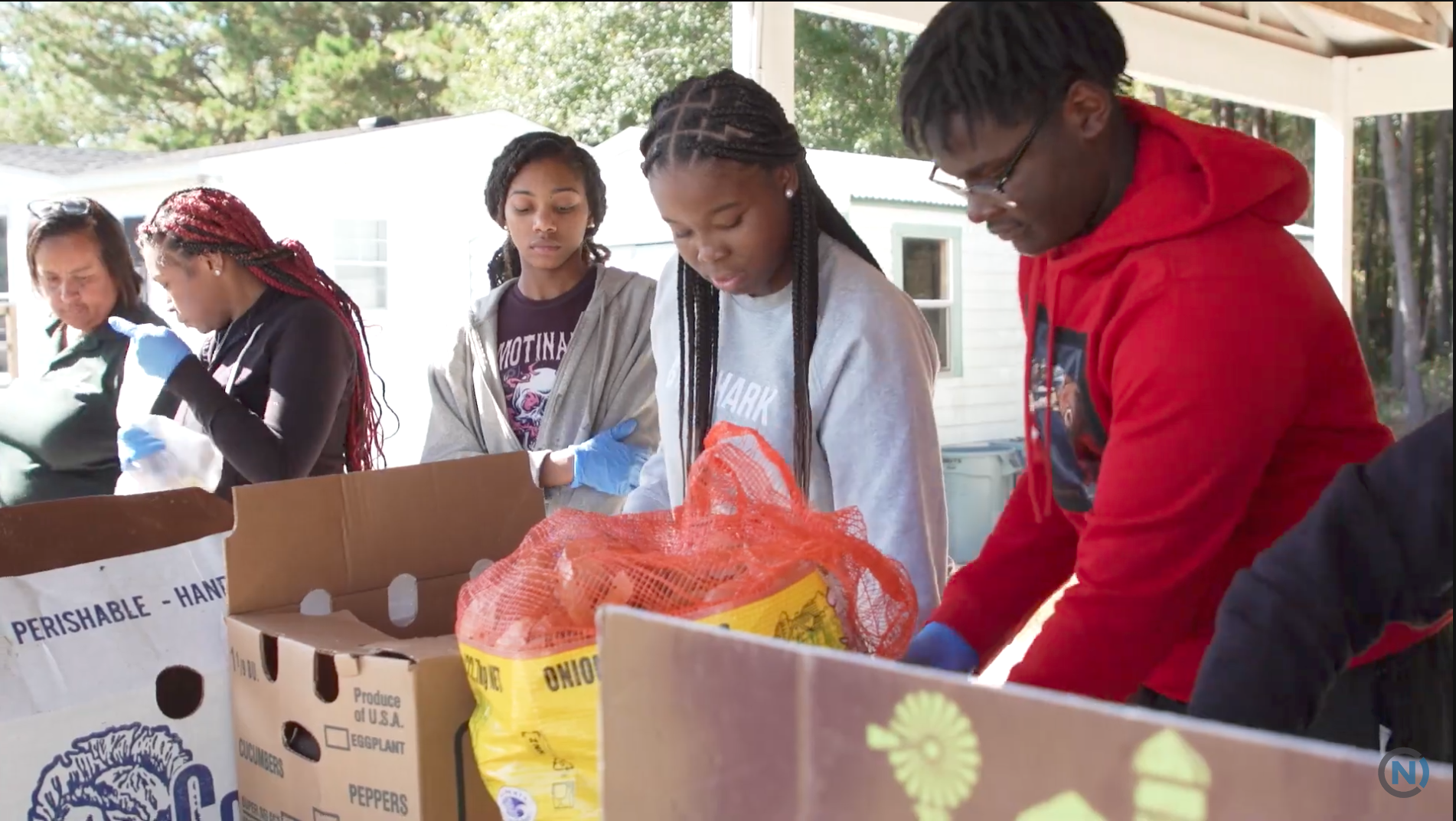Engaging Disconnected Young Adults Blog
Recent research indicates pronounced differences in outcomes such as employment, income, homeownership, and health when comparing young adults who have become disconnected from school or work versus those who have remained consistently connected.

The Problem
Disconnected Youth and Opportunity Youth are terms used to describe young adults between 16 and 24 who are not enrolled in school or participating in the labor force. This population faces significant challenges, including high poverty, unemployment, and social isolation. Disconnected youth are also at a higher risk of experiencing homelessness, substance abuse, and involvement in the criminal justice system.
For nearly a decade – during the recovery from the Great Recession and before the COVID-19 pandemic – Opportunity Youth percentages had steadily declined nationally, from 14.7 percent in 2010 to 10.7 percent in 2019. COVID-19 changed all that.
The early months of the pandemic stripped away those improvements due to a double whammy to this age group. First, the unemployment rate for people ages 16 to 24 jumped to 24.4 percent between the spring of 2019 to the spring of 2020. This was due, in large part, to younger workers being employed in jobs and sectors hard hit by COVID-19. Second, the abrupt shift to online learning came with significant challenges for students, including those in K-12 and post-secondary education. This was especially true for those without the necessary technological tools, such as reliable internet and computing devices, and the emotional support to stay engaged and make this transition successfully.

The Solution
The 6-14 Workforce Pipeline is a collaborative effort by Person County schools, Piedmont Community College, and the Person County Economic Development Commission to guide students to future jobs and college enrollment through pathways such as agriculture, business technology, and health sciences. The program aligns college degrees, diplomas, and certificates with the demands of the local workforce to create a purposeful and deliberate approach to workforce training. Pollywood, a furniture manufacturer in Person County, has already hired students out of the program and finds the alignment with a college critical to business. The goal is to keep students employed long-term so they can train and encourage others to enter the program at Piedmont Community College and progress with the company. Priscilla Holloway, a high school graduate, got a college internship with Pollywood, and technology sparked her interest. She has created great friendships and plans to finish college and pursue her career in technology. The 6-14 Workforce Pipeline aims to help even more students get connected with a better future through continued rotations and offerings.
The Youth Ambassadors for a Better Community program, run by the non-profit Men and Women United for Youth and Families in Columbus and Bladen counties, connects middle and high school students in rural areas to farming and improving food access in their communities. The program partners with local farmers and engages youth in collecting and distributing food to local restaurants. In addition to providing important resources and solving community problems, the program teaches life and leadership skills and pays students an hourly wage. According to community partners, the program has positively impacted the youth involved, giving them a purpose and exposing them to opportunities beyond their rural areas. The program sometimes uses high-achieving peers to motivate others. One student, D’ante Grover, initially focused on mechanical engineering, has been inspired to pursue agriculture engineering as a potential career path after his experience in the program. Many other students have also gone to college after participating in the program. The program serves as a hub of resources and community engagement, promoting sustainability and independence among rural youth.
The Players
The success of the 6-14 Workforce Pipeline depends on the partnership between Person County Schools, PCC, and Person County Economic Development Commission. The community’s support, feedback, and demands are crucial to the program’s success and partnerships with businesses like Pollywood. Students are encouraged to try classes even if they’re unsure, as they never know whether it will reach their future job.
The Youth Ambassadors programs include the youth who pack and deliver weekly fresh produce bags filled with fresh fruits and vegetables from local farmers (mostly from Bladen, Brunswick, Columbus, New Hanover, and Pender counties) to vacationers on beaches throughout Southeastern NC. The Vacation Vittles is a Vacation Supported Agriculture Program led by NC State’s People-First Tourism Lab and NC State Extension (Local Foods, Community Development, and Tourism Extension). The youth also sell locally-sourced produce at an on-site farmers market hosted by Novant Health in Wilmington, NC. Other partners to the organization include the Northside Coop Farmers Market in Wilmington and local restaurants that buy local, seasonal, fresh food for their menus. The youth themselves play different roles. Some were disconnected or at high risk for disconnection. Others have always been high achievers, and they serve as peer influencers.
The Promise
These experiences for young adults are not just individually impactful; they have major implications for our economy and communities’ social, physical, and emotional well-being. Recent research indicates pronounced differences in outcomes such as employment, income, homeownership, and health when comparing young adults who have become disconnected from school or work versus those who have remained consistently connected. This research estimates an additional $12,000 of tax revenue per person per year for individuals who remain connected compared to those who do not.


